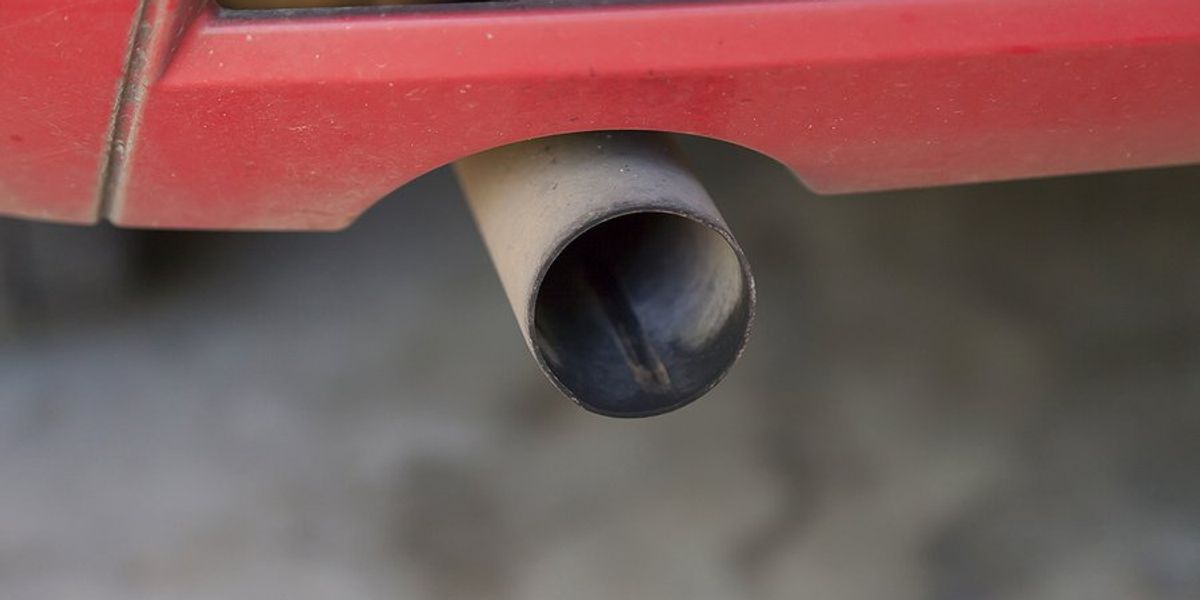climate policy
The Inflation Reduction Act’s green energy promise is putting Black communities at risk
A proposed tax credit for biomass energy plants could accelerate pollution in Black communities in the rural South, where forests are already being depleted for European energy demands.
In short:
- Biomass plants, which burn wood pellets for energy, emit carcinogens and other pollutants, disproportionately affecting Black and low-income communities.
- The proposed tax credit could subsidize biomass facilities, despite evidence that these plants are more harmful to the environment than coal.
- Over a million acres of forests in the rural South are being cleared for biomass production, worsening health and environmental outcomes for local residents.
Key quote:
"Ultimately, we’re killing the Earth and each other. It’s a false climate solution that leaves Black and brown communities still bearing the brunt of the damage."
— Treva Gear, Georgia activist
Why this matters:
Communities like Adel, Georgia are left with the pollution, loss of green space and the destruction of the very forests we depend on to capture carbon. It’s an ironic twist—clean energy for Europe, while Black communities in the South bear the brunt of the damage. Read more: How Europe’s wood pellet appetite worsens environmental racism in the US South.
The next president will face a climate reckoning
The climate crisis is battering the U.S., but the presidential debate barely touched on the issue, leaving many questions unanswered as Americans grapple with wildfires, hurricanes, and extreme heat.
In short:
- Extreme weather events, including wildfires and hurricanes, are causing widespread damage, yet presidential candidates have provided few concrete plans for addressing these disasters.
- The insurance industry is fleeing high-risk areas, leaving millions without coverage as climate impacts worsen, but this crisis remains largely ignored in political discussions.
- Kamala Harris and Donald Trump offer vague climate positions, with Harris focused on building on Biden’s climate policies and Trump advocating for more oil drilling.
Key quote:
“We can deal with this issue.”
— Kamala Harris, Vice President
Why this matters:
The climate crisis is no longer some distant, theoretical problem. It's here, smacking us in the face with wildfires, hurricanes, heatwaves, and floods. Regardless of their stance on climate policy, the next leader will have to answer for how they will protect American lives in the face of a changing, and increasingly hostile, environment. Read more: We mobilized to defend the EPA in Trump's first term. This time the stakes are even higher.
Trump plans to dismantle climate funding from key law if elected
Donald Trump announced his intention to pull back unspent funds from the Inflation Reduction Act, a key climate law, should he win the 2024 election, sparking concern over its impact on climate projects, especially in Republican districts.
In short:
- Donald Trump vowed to cancel unused funds from the Inflation Reduction Act, targeting climate and energy programs.
- He floated a government efficiency commission, possibly led by Elon Musk, aimed at reducing government waste.
- The Biden administration has already allocated billions in climate funding, but much remains unspent, creating potential legal battles over clawing back those funds.
Key quote:
“I look forward to serving America if the opportunity arises. No pay, no title, no recognition is needed.”
— Elon Musk
Why this matters:
The Inflation Reduction Act is funneling billions into renewable energy projects, electric vehicles, and cleaner industry across the U.S.—including a lot of Republican-led states that could really use the cash. If Trump succeeds in cutting these funds, it could derail green energy jobs and infrastructure growth in areas that have started to see the benefits. Read more: House Speaker Mike Johnson’s climate change playbook — deny the science, take the funding.
Reimagining energy: The rise of free solar power
A solar revolution is underway, with experts predicting that by 2030, solar power could be effectively free during daylight hours in many regions.
In short:
- Solar energy capacity saw an 80% increase in 2023, now providing nearly 6% of global electricity, with expectations to become the dominant source by the 2030s.
- The cost of solar panels has dropped dramatically, making solar the cheapest new electricity source for 95% of the world.
- The future may bring industries that adjust operations based on solar availability, with a growing focus on energy storage and transmission.
Key quote:
“The next tenfold increase will be equivalent to multiplying the world’s entire fleet of nuclear reactors by eight in less than the time it typically takes to build just a single one of them.”
— The Economist
Why this matters:
With fewer fossil fuels being burned, we could see a dramatic drop in pollution-related illnesses, cleaner air, and a significant cut in carbon emissions. The challenge now is to figure out how to harness this potential. Read more: Solving the climate crisis requires more than switching to renewables—everyone needs equal access.
Republicans scramble as Democrats weaponize Project 2025
Democrats are turning the tables on Republicans by using Project 2025, a controversial conservative policy blueprint, as a powerful political weapon.
In short:
- Democrats are linking Republicans to Project 2025, a detailed policy manual, to portray them as extreme ahead of the upcoming election.
- Republicans, who once used the Green New Deal to attack Democrats, are now on the defensive as Project 2025 proves unpopular with voters.
- Polls show Project 2025’s policies, like cutting renewable energy funding and mass firing government workers, are largely rejected by the public.
Key quote:
“This is just rocket fuel for Democratic motivation and turnout.”
— Rep. Jared Huffman (D-Calif.), House Democratic task force leader.
Why this matters:
While the Green New Deal was about aggressively tackling climate change with sweeping reforms, Project 2025 seems to be a pivot in the opposite direction, potentially undermining environmental protections in favor of deregulation. For the average American, this could mean a rollback on efforts to curb emissions, protect public lands, and address climate justice. Read more: Greenwashing’s medieval age.
DNC aims to lead by example with carbon reduction efforts at Chicago convention
Climate-conscious attendees at the Democratic National Convention in Chicago are being urged to actively participate in sustainability efforts, from carbon insetting to recycling and composting.
In short:
- The DNC has launched a Travel Carbon Inset Initiative to encourage attendees to donate to local sustainable projects, aiming to mitigate the event's carbon footprint.
- Sustainability measures include compost collection, increased recycling at the United Center and using grid power instead of diesel generators.
- Critics of carbon offsetting highlight that this initiative could serve as a more effective model for reducing emissions at large events.
Key quote:
“This convention has the potential to leave a transformative legacy.”
— Stephanie Katsaros, local sustainability advisor
Why this matters:
This move aligns with the broader shift we’re seeing across the board: organizations, events, and even individuals are looking for more authentic ways to reduce their environmental impact. It’s a small step in the right direction, showing that even large-scale political events can rethink their approach to sustainability, one donation at a time. Read more: Biden administration unveils plan to wean US government off single-use plastic.
Sweden shows how to slash emissions while boosting the economy
Sweden has managed to cut 80% of its emissions since 1990 while doubling its economy, proving that economic growth and climate protection can go hand in hand.
In short:
- Sweden's success comes from early investments in renewable energy, utilizing its natural resources like forests and hydropower.
- The country transitioned away from fossil fuels for heating and electricity, with biofuels now powering 97% of heating.
- Strong government policies, including a high carbon tax, incentivized businesses and citizens to adopt greener practices.
Key quote:
"The biggest lesson is that you need close cooperation between government, private sector, and the local government as well to really develop these system solutions together and take risks, make these big long-term investments."
— Asa Persson, advisor to the Swedish government on climate policy.
Why this matters:
By investing in green tech, enforcing strict environmental regulations and pushing for a circular economy where waste becomes a resource, Sweden is showing the world that you don’t have to choose between a healthy planet and a thriving economy. Read more: Steps to re-invigorate the economy must free us from polluting fossil fuels.



















